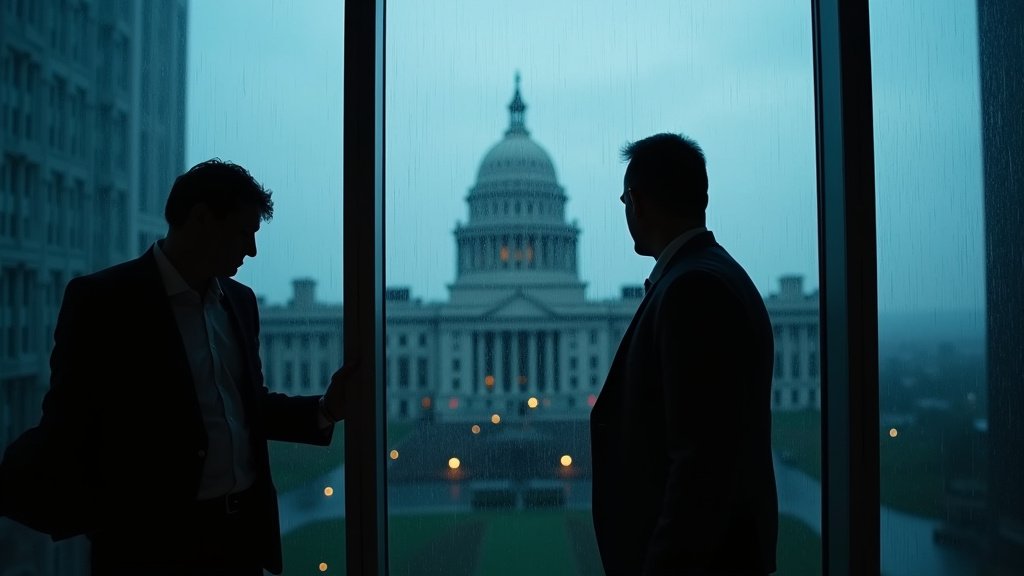A new chapter in the contentious Texas redistricting saga is unfolding at the state Capitol, where Democratic lawmakers are staging an unprecedented overnight protest. The current demonstration, marked by legislators sleeping on chamber floors, is a defiant stand against Republican-mandated police escorts and the broader effort to redraw congressional maps that Democrats argue will disenfranchise minority voters and solidify GOP power for years to come.
The dramatic scene follows weeks of high-stakes political maneuvers, including a two-week quorum break that saw over 50 Democratic House members flee the state. This political news has captured national attention, highlighting the fierce partisan struggle over electoral boundaries in one of the nation’s largest states.
The Quorum Break That Paved the Way
The immediate precursor to the Capitol sleep-in was a strategic departure by a significant portion of the Texas House Democratic Caucus earlier this month. More than 50 lawmakers left Texas, primarily for Illinois, with others heading to New York and Massachusetts, effectively denying the Republican-controlled House the 100 members required for a quorum to conduct legislative business. Their objective was clear: to block the passage of proposed congressional maps that they contend are a “racist gerrymander” designed to dilute the voting power of communities of color and ensure Republicans gain up to five additional U.S. House seats in the 2026 midterm elections.
Texas Governor Greg Abbott and Republican leaders swiftly condemned the walkout, issuing civil arrest warrants and threatening hefty fines of $500 per day for absent members. Governor Abbott, determined to pass the redistricting agenda, called multiple special sessions, vowing to continue doing so indefinitely until the maps were approved. Despite these pressures, Democrats remained out of state, leveraging their absence to draw national awareness to the issue.
The Capitol Overnight Standoff
Upon their eventual return to Austin, the Democratic lawmakers were met with new attendance rules imposed by Republican House Speaker Dustin Burrows. These protocols required Democrats who had broken quorum to sign “permission slips” to leave the chamber and agree to be escorted by Department of Public Safety (DPS) troopers. This move was widely perceived by Democrats as a form of harassment and surveillance.
In response, State Representative Nicole Collier of Fort Worth initiated an overnight protest, refusing to sign the permission slip and choosing instead to remain in the House chamber. She was soon joined by fellow Democrats, including House Democratic Caucus Chair Rep. Gene Wu of Houston and Rep. Vince Perez of El Paso, who stayed in solidarity, some sleeping on leather chairs. This act of defiance transformed the Capitol itself into a symbolic battleground, generating significant buzz.
High Stakes: Redrawing the Political Landscape
At the heart of this intense standoff is the decennial process of redistricting, which typically follows the U.S. Census. However, this mid-decade redistricting effort in Texas is unusual and directly influenced by former President Donald Trump’s push to strengthen the Republican Party’s narrow majority in the U.S. House. The proposed maps aim to increase the number of GOP-leaning districts significantly, disproportionately favoring Republicans far beyond their statewide voter support.
Democrats argue that these maps engage in “cracking” and “packing,” strategies that split up minority communities or consolidate them into a few districts, thereby diminishing their overall political influence. For instance, despite Hispanic Texans comprising over 40% of the state’s population, only a small fraction of the proposed new districts would have a Hispanic majority, a point of major contention.
A National Ripple Effect and Future Battles
The political drama in Texas has sent ripples across the nation, triggering a broader partisan redistricting battle. Notably, California Democrats, holding supermajorities in their state legislature, have unveiled their own proposal to redraw congressional districts, explicitly aiming to offset any Republican gains from the Texas maps. This tit-for-tat approach underscores the high stakes of gerrymandering on the national political landscape and the upcoming 2026 midterm elections.
While the Democrats’ quorum break successfully delayed the passage of the maps and the first special session, their return to Austin will likely enable Republicans to now pass the proposed maps. However, Democrats have vowed to continue their fight in the courts, preparing to challenge the legality and fairness of the new district lines. This historical tactic of breaking quorum, deeply rooted in Texas political tradition, serves as a powerful message, even if its direct legislative impact is temporary. The ongoing legal and political battles are expected to keep the redistricting debate at the forefront of news in Texas for the foreseeable future.






